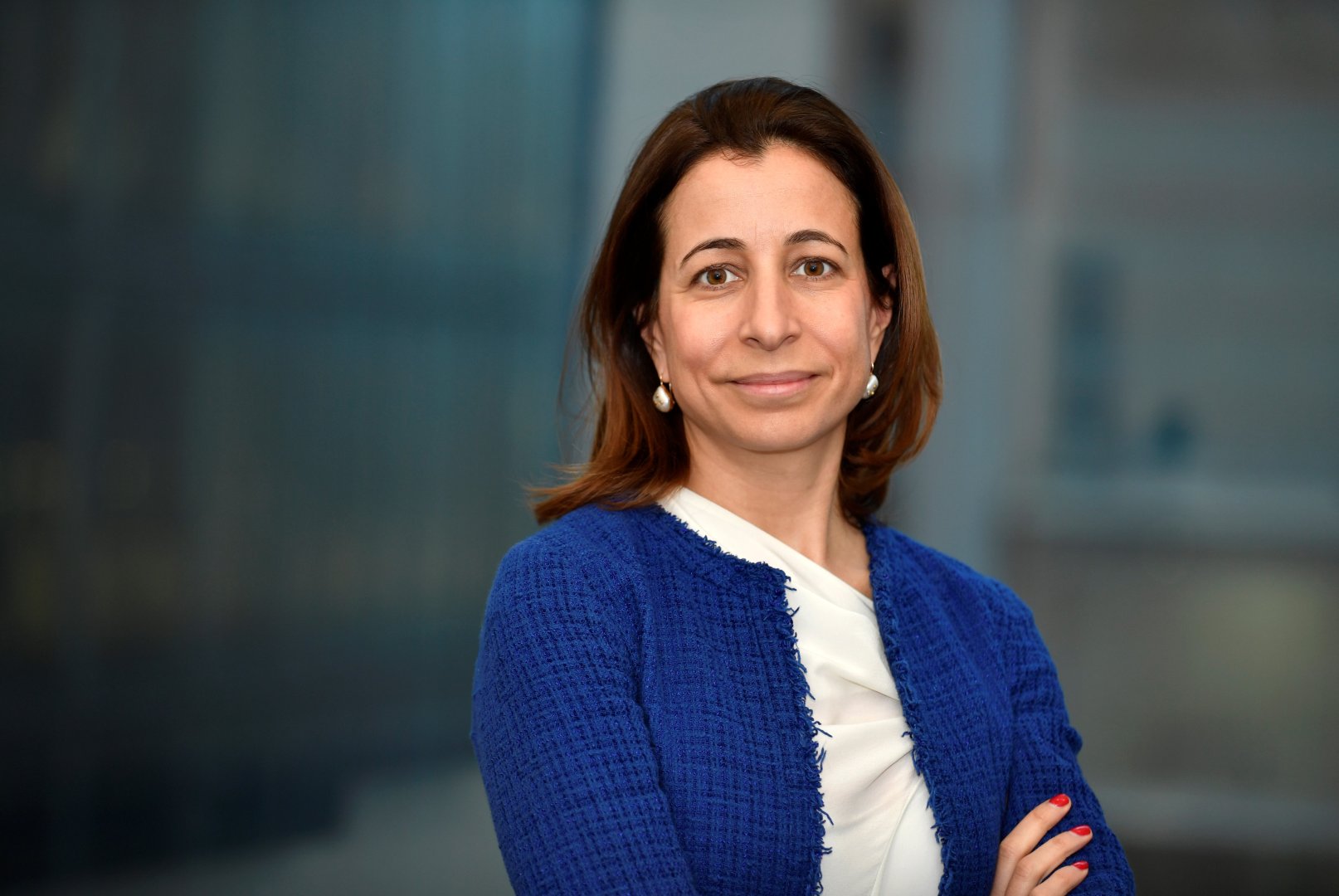BAKU, Azerbaijan, September 9. The International Finance Corporation (IFC) highly values its strong partnership with Azerbaijan, based on a shared commitment to private sector development and strengthening economic resilience, Ines Rocha, IFC’s Division Director for Europe said in an exclusive interview with Trend.
IFC's division director noted that as Azerbaijan continues its efforts to diversify its economy and reduce reliance on oil and gas, the private sector plays a critical role in driving sustainable development, creating jobs, and enhancing competitiveness.
She added that under the World Bank Group’s Country Partnership Framework for Azerbaijan, IFC is focusing on building a more competitive, inclusive, and greener economy. IFC’s role centers on supporting private sector investments in key areas such as infrastructure, energy access, and sustainability. This includes promoting green finance, empowering women entrepreneurs, and expanding private sector participation in agriculture, water, transport, and digital connectivity to foster growth and resilience.
“Looking ahead, IFC is prioritizing agriculture, water security, and sustainable construction as key sectors for collaboration. In agriculture, we are helping introduce innovative financing tools like crop and warehouse receipts to help small farmers access working capital and integrate into global value chains. In the water sector, we aim to help address growing water scarcity by supporting sustainable water management strategies and exploring financing for desalination and wastewater treatment.
In construction, IFC aims to help advance green building initiatives. One example is the AlatBay Logistics Center, which achieved significant energy and water savings by implementing measures as part of EDGE certification, an innovative green building certification system developed by IFC. Additionally, we are exploring opportunities in transport, logistics, and e-mobility to enhance Azerbaijan’s connectivity and sustainability,” she said.
Azerbaijan's transition to green energy remains a key priority
According to IFC's division director, as Azerbaijan seeks to diversify its economy and transition to greener energy sources, IFC is committed to supporting the development of the country’s renewable energy sector.
“This sector holds remarkable potential, including an estimated technical potential of 23 gigawatts of solar energy and 157 gigawatts of offshore wind capacity. Building extensive regional transmission infrastructure could allow Azerbaijan to capitalize on its abundant resources and establish itself as a major global exporter of green energy.
Developing renewable energy requires substantial investment, estimated at $44 billion by 2060, according to the World Bank Group’s Country Climate and Development Report.
And there is a strong need for the financial sector to align more closely with the financing needs of renewable energy projects. To demonstrate the effectiveness of this type of lending and to enhance local banks' green finance capabilities, IFC offers a range of investment and advisory services. For example, last year, IFC provided $20 million in local currency financing to Bank Respublika, a leading financial institution in Azerbaijan. Half of the amount was earmarked for such projects developed by MSMEs and low-income households,” said Ines Rocha.
She went on to add that building on the momentum from COP29 in Baku, IFC remains committed to supporting Azerbaijan’s plans and priorities in this area. For example, the transport sector, which accounts for 22.6 percent of total energy consumption, presents significant opportunities for decarbonization.
“IFC welcomes the government’s initiatives, such as tax incentives for electric vehicles and the ongoing renewal of the bus fleet. As the government develops the necessary regulatory, policy, and institutional frameworks, IFC can help unlock private sector solutions along the value chain, enabling sustainable investments that align with Azerbaijan’s goals. By working together, IFC can help the country transition to a low-carbon economy while fostering economic growth and resilience,” she added.
Sustainable growth through financing, digitalization, and public-private partnerships (PPP)
Rocha noted that IFC prioritizes improving access to finance for SMEs in Azerbaijan, recognizing their critical role in driving economic growth and job creation.
She said that IFC collaborates with local banking institutions, such as Bank Respublika, to provide funding to smaller businesses. This approach ensures that SMEs have greater access to the financial resources they need to grow and thrive. Moving forward, IFC plans to expand this strategy by working with both existing and potential partners.
“In addition to financing, IFC offers advisory services to financial institutions to strengthen sustainable finance and governance practices. To further enhance SME financing, we advocate for asset-based financing, which allows smaller businesses to use movable assets such as inventory and equipment as collateral. This innovative approach broadens access to finance for a wider range of businesses. In collaboration with the Azerbaijan Banks Association, we are supporting the development of a national asset-based finance tool, which will create new opportunities for SMEs to secure the funding necessary for their growth and success.
IFC supports Azerbaijan’s efforts to expand digital banking and enhance access to financial services, particularly for underserved populations in rural and remote areas. We welcome the Central Bank’s launch of a regulatory sandbox, which provides a controlled environment for companies to test and develop innovative digital financial products. This initiative fosters innovation while ensuring that risks are effectively managed, creating a strong foundation for the growth of digital financial services in the country,” she added.
IFC's division director noted that at the private sector level, IFC provides advisory services to financial institutions to support their digital transformation.
According to her, by introducing the latest industry practices and technologies, IFC helps banks and other financial institutions modernize their operations and improve their outreach. This not only strengthens the financial sector but also ensures that more individuals and businesses can access the financial tools they need to grow and succeed in an increasingly digital economy.
“Given its strategic position along the Middle Corridor, the recently announced expansion plans for the Baku International Sea Trade Port, aimed at increasing the port’s annual cargo turnover, represent a key opportunity to strengthen regional connectivity and trade. Leveraging private sector expertise, efficiency, and investment capacity in such developments can help ensure the port’s long-term sustainability and competitiveness.
Clear and well-structured public-private partnership (PPP) models can promote private sector participation. These frameworks help balance public oversight with private sector innovation, enabling the port to meet growing demand while maintaining high operational standards. IFC has a proven global track record of offering advisory and investment support to design and implement PPPs, ensuring that private sector participation aligns with Azerbaijan’s broader economic and infrastructure objectives,” she said.
IFC supports the modernization of railways and logistics in Azerbaijan
“At IFC, we recognize Azerbaijan’s strategic importance in the Middle Corridor, a vital trade route connecting Europe and Asia through the South Caucasus. As traffic along the corridor continues to grow annually, Azerbaijan’s efforts to modernize key railway sections are critical to meeting increasing demand and improving connectivity. IFC is in a position to support these modernization efforts by exploring investment opportunities that enhance the corridor’s efficiency and sustainability.
One area of focus could be investments in renewing the rolling stock of railcar transport operators, which would improve the reliability and capacity of freight transport along the corridor. Such initiatives can enable Azerbaijan to reinforce its position as a key transit hub, promote regional trade and economic growth, and advance sustainable infrastructure development,” added Rocha.
She noted that IFC sees significant potential in Azerbaijan’s efforts to develop logistics hubs, multimodal terminals, and digital solutions along the Middle Corridor.







